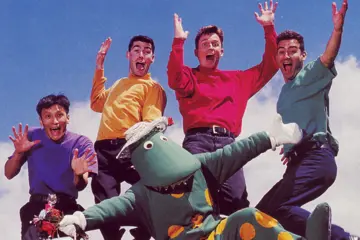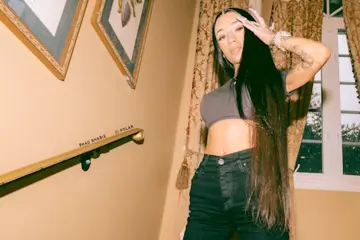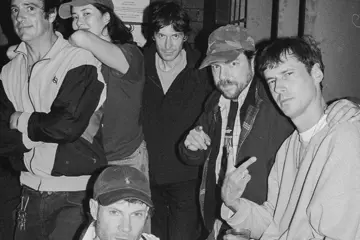What has been your industry highlight of the decade?
Julia Wilson
Rice Is Nice Records, Owner
The rise of the indie label, female artists and Australians championing Australian music. There has been a shift in the last ten years where we have seen independents, females and Australians dominating the scene. It's been a long time coming and just the beginning.
Steve Cross
Remote Control, Director
Music fans generously acknowledging that artists deserve to be paid for the music they create and opting to support musicians by purchasing their music via the flourishing digital services and the reborn record stores.
Roger Field
Live Nation Australasia, CEO
I’ve been in the industry since 1995 when I started selling tickets in a call centre for Stoll Moss Theatres. In the past decade, and with my knowledge of ticketing, the highlight has been the disruption caused by the web-based secondary market that has led to some great and overdue innovation in the way we can now sell and deliver our tickets.
Jaddan Comerford
UNIFIED Music Group, CEO
Don't miss a beat with our FREE daily newsletter
Streaming is a very obvious answer but what it's done, regardless of revenue growth, is it's got more people listening to more music, on a global level. The opportunities this has created are still yet to be realised.
Dean Ormston
APRA AMCOS, CEO
Incredibly rapid growth in the number of Australian/NZ songwriters, composers and artists succeeding internationally – reflected in the fact that APRA AMCOS’ foreign revenue has more than doubled in five years. To support the success of our members we now have APRA AMCOS reps in London, LA and Nashville.
Stephen Wade
Select Music, CEO
I would say it more as a collective highlight and that is the exporting of so many Australian artists overseas. From RUFUS DU SOL to Tame Impala, Flume, Boy & Bear, Amy Shark, Tones & I, there is no doubting we match it with the best in the world.
Denis Handlin AO
Sony Music Entertainment, Chairman & CEO (Australia & NZ) & President (Asia)
The highlight for me over the last decade has been seeing so many Australian artists break and be embraced right around the world. Artists from Australia have recently impacted streaming charts and playlists not only locally but internationally as well. Australian artists including Tones & I, Amy Shark, Tash Sultana, The Kid Laroi, Ruel and Gang Of Youths are receiving worldwide attention and are being streamed by music fans from many countries outside of Australia. New subscription services, together with the power of social media and digital marketing, that have launched and been developed across the decade have allowed music fans from anywhere in the world to discover, experience and champion our Australian artists.
Think back ten years, do you think the industry has drastically improved? In what way? What still needs to be done?
Jeb Taylor
Farmer & The Owl/Music Farmers, Co-owner
The industry finding a way to generate income from digital music has been a big turning point. Ten years ago the majority of digital music was just being illegally downloaded. Live, there are a lot of uncertainties around festivals so there is still a bit to be done there.
Jessica Krishnaswamy
BBE Touring & Events/FOMO Festival, Owner
No I don't think it has drastically improved, I think there are more challenges than ever. Being an independent promoter is harder than ever, governmental pressures are higher than ever, competition is fiercer than ever. Fostering a sense of mutual respect and collaboration is the only positive way forward.
Ben Tillman
Yours & Owls/Farmer & The Owl, Co-owner
I hadn’t begun my career yet, but recorded music was much harder with piracy, etc. To move forward, some more formal organisation of the 'industry' as a whole is necessary. Despite what we contribute to society creatively and economically, we're not respected by formal institutions such as government.
Jeremy Neale
The industry has drastically improved. There's a greater awareness of the impact of creative demands on mental health and more resources for new artists to better understand how the industry works and what support is available to them.
Fanny Lumsden
The ability to be DIY and independent has drastically changed. Therefore so much great art is being made as there are channels for it to be released. We are finally seeing more women move to the front. However, streaming has made it financially very challenging.
Nicholas Greco
Untitled Group, Co-director
Definitely, there's a lot more representation for female and non-binary artists across our line-ups than ever before and we're also a lot more sustainability focused. Initiatives such as Party With The Planet, which we are a part of, have seen us lower our environmental footprint drastically.
Cyrus Meher-Homji OAM
Universal Music Australia, Classics & Jazz, Senior Vice President
We are a lot more forward thinking; it was perhaps too much about the new single, the new release, the new hit. But there’s no future without a past, and the dominance of streaming has proven just how perennial our heritage recordings (or catalogue) are, and I think there’s a lot more still to be done in seriously activating it.
What do you think will be the defining trend of the 2010s?
Helen Marcou AM
Bakehouse Studios, Co-owner
The big story for this decade has been the voice of women. In song, leadership, visibility. In particular First Peoples and WOC and the authenticity they bring with their music.
George Ash
Universal Music Asia Pacific, President
Globalisation has brought incredible profile to many of our artists. I am not sure a genre or movement has been musically game changing, but the explosion of local hip hop and the voice it has given many communities, is for me, the defining impact music will have from this era.
Tim McGregor
TEG Live, Managing Director
Increased tribalism facilitated by on-demand streaming platforms is rendering the push programming of legacy media highly challenged and so they must adapt to survive. So much time spent on virtual/digital engagement will make the live experience even more valued, which is good news for promoters and performers.
Peter Noble OAM
Bluesfest, Executive Director
We saw a lot of iconic Australian festivals cease operating, and it wasn’t just Soundwave and Big Day Out. It was the age of excess, it was the age of ‘bigger is better’, and it didn’t work out in the end for a lot of people. To me, I was saddened by those festivals going because they meant something to Australia - they gave us a sense of identity, they were different.
Ash Grunwald
I'm really loving the old school approach to music and how some classic sounds from R&B, blues and soul are making their way back in to the pop music scene.
Andrew Coates
Black Cab, Vocalist
It's got to be the way music distribution has completely changed from physical products to always-on streaming through platforms like Spotify and YouTube. Kids today can instantly cherry-pick through every song ever recorded, anytime, on any device. There's no 'scarcity' for content - scarcity only remains in live experiences.
Amanda Vitartas
Future Popes, Director
I believe the defining trend in music of the 2010s would be that indie is the new mainstream. In the guitar world, artists like King Gizzard and Courtney Barnett have really shown us how you can stay independent while still being exceptionally successful.















